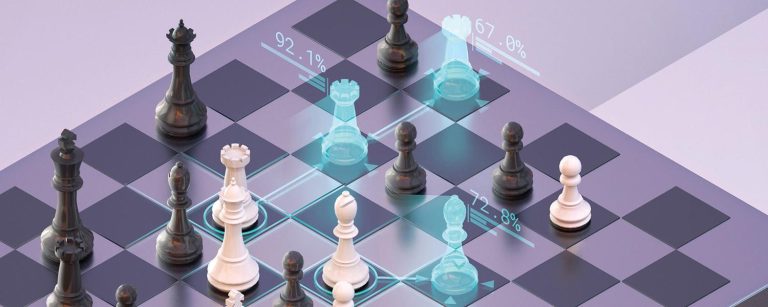Title: “Chess 2.0: Embracing Innovation in the World's Oldest Game”
As we enter the year 2040, the timeless game of chess has undergone a remarkable transformation, embracing technology to create an experience that seamlessly blends tradition and innovation. In this futuristic landscape, players of all levels find themselves immersed in a dynamic world where every action is a testament to human ingenuity and the power of artificial intelligence.
AI integration:
One of the most important developments in the world of chess is the integration of powerful artificial intelligence (AI) companions into the gameplay. Powered by advanced algorithms and machine learning, AI assistants provide players with unparalleled insights and analysis, revolutionizing the way the game is played. Whether you're a beginner looking to improve your skills or a seasoned expert looking for a worthy opponent, these digital companions provide invaluable support, analyzing situations, predicting moves, and offering real-time strategic advice.
Virtual reality chess:
In this futuristic era, virtual reality (VR) technology has transformed the traditional chessboard into a captivating 3D battlefield, where players can immerse themselves in fully interactive environments. From ancient castles to futuristic landscapes, the possibilities are endless, providing players with an immersive and visually stunning experience. Using virtual reality headsets and motion controllers, players can move pieces with precision and engage in strategic battles that feel more realistic than ever before.
World Championships and Watching:
Chess tournaments have transcended physical boundaries, becoming a global spectacle that brings together players and fans from all over the world. Thanks to advanced streaming technology and interactive platforms, millions of viewers can tune in to watch their favorite players compete in real time. Live commentary, analysis and interactive features enhance the viewing experience, turning chess tournaments into exciting events that captivate audiences around the world.
Augmented Reality Chess:
Augmented reality devices have taken the game of chess out of the digital world and into the real world, allowing players to superimpose a digital chessboard onto any surface. Whether it's a coffee table, a park bench, or a city sidewalk, players can transform ordinary spaces into epic battlefields as strategic battles unfold before their eyes. Using augmented reality glasses or smartphones, players can move pieces, visualize potential moves, and explore new strategies in a truly immersive and interactive way.
Strategy development:
With access to extensive game databases, sophisticated analysis tools, and AI-powered insights, the chess strategy landscape is constantly evolving. New opening variations, tactical flourishes, and end-game techniques regularly appear, challenging players to adapt and innovate. In this ever-changing landscape, creativity and adaptability are key to success, as players strive to stay ahead of their opponents and push the boundaries of what is possible on the board.
In conclusion, the future of chess is an exhilarating blend of tradition and innovation, where timeless principles meet cutting-edge technology to create a truly immersive and dynamic experience. Whether you're a casual enthusiast or a seasoned master, the world of Chess 2.0 offers something for everyone, inviting players to explore new horizons and push the boundaries of what's possible on the 64 squares. So strap on your VR headset, fire up your AI companion, and get ready to embark on a A journey into the future of this ancient game.

